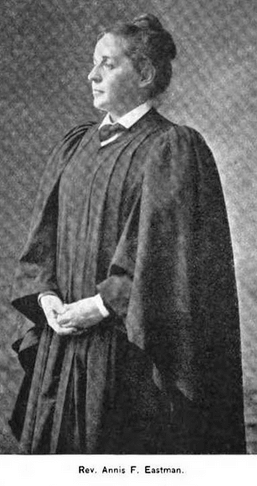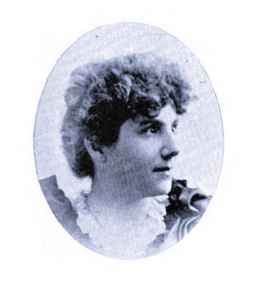VOTES FOR WOMEN
- Program
- Subject
- Location
- Lat/Long
- Grant Recipient
-
National Votes for Women Trail
-
People
- 535 Valley Rd, Brooktondale, NY 14817, USA
- 42.38107, -76.392121
-
National Collaborative for Women's History Sites
VOTES FOR WOMEN
Inscription
VOTES FOR WOMENFORMER CHURCH PASTORS ANNIS
FORD EASTMAN, ORDAINED 1889,
& JUANITA BRECKENRIDGE BATES,
ORDAINED 1892, CHAMPIONED
WOMEN’S RIGHTS & SUFFRAGE.
WILLIAM G. POMEROY FOUNDATION 2022
In 1889, suffragist Annis Ford Eastman (1852-1910) was ordained and made pastor of the Brookton Congregational Church, later named Caroline Valley Community Chruch, located in Brooktondale in Tompkins County, New York. Her successor, Juanita Breckenridge Bates (1860-1946), also a suffragist, was ordained pastor of the Brookton Congregational Church in 1892. Both women devoted themselves to advocating for women’s rights and suffrage.
Annis Ford Eastman was well regarded as a writer and lecturer, and was a member of the National American Woman Suffrage Association (NAWSA). In 1893, she delivered the sermon preceding the twenty-fifth annual NAWSA convention of held in Washington, D.C. The June 30, 1894 edition of the Woman’s Journal noted that she had “been asked to preach in some of the most influential churches in the country” and that her sermons were “of marked originality and power.” The November 28, 1898 edition of the Elmira Star-Gazette reported on one of her lectures titled “Why I Want to Vote” delivered in Cortland under the auspices of the local Political Equality Club. In the lecture, Eastman argued for women’s right to vote, stating that “women had a sphere in the state as well as in the home.” The Star-Gazette described the crowd’s reception to Eastman and her skill as a speaker:
No short sketch could adequately represent the address which was listened to with the profoundest attention and received with cheers at its close. It was a strong, convincing argument, most pleasingly delivered, piquant yet softened with keen wit and quiet sarcasm. Mrs. Eastman is a small woman with strongly marked intellectual features, pleasant, rich voice, and most pleasing manner. She is persuasive and not vehement. She speaks quietly and with perfect ease and yet is easily heard in every part of the house. The Political Equality Club honored itself as well as Cortland by bringing her here.
Eastman had two children, a daughter Crystal and son Max. Both of her children went on to lead lives dedicated to social and political activism. Eastman did not live to see women’s suffrage achieved, having died in 1910 after a brief illness.
Like her predecessor, Juanita Breckenridge Bates also lectured in support of women’s right to vote. Bates was a leader in the women’s suffrage movement in Ithaca and Tompkins County. The January 26, 1915 edition of the Ithaca Journal advertised a talk by Bates on “The Religious Aspects of Woman Suffrage.” Bates was lecturing as part of the 1915 New York State campaign for a women’s suffrage amendment to the state constitution. The suffragists were successful in getting a proposed suffrage amendment before voters at that year’s election. However, while the proposed amendment carried in Ithaca and Tompkins County, it was ultimately defeated at the polls and did not pass.
In 1917, after decades of activism by women like Eastman and Bates, suffragists saw victory in New York when the state constitution was amended, securing New York women’s right to vote. Victory in New York helped to influence public support for women’s suffrage on a national scale, and on June 4, 1919, the United States Congress passed the Nineteenth Amendment which reads, “The right of citizens of the United States to vote shall not be denied or abridged by the United States or by any state on account of sex.” By August 1920, the necessary 36 states had ratified the amendment, securing women’s right to vote across the United States.


